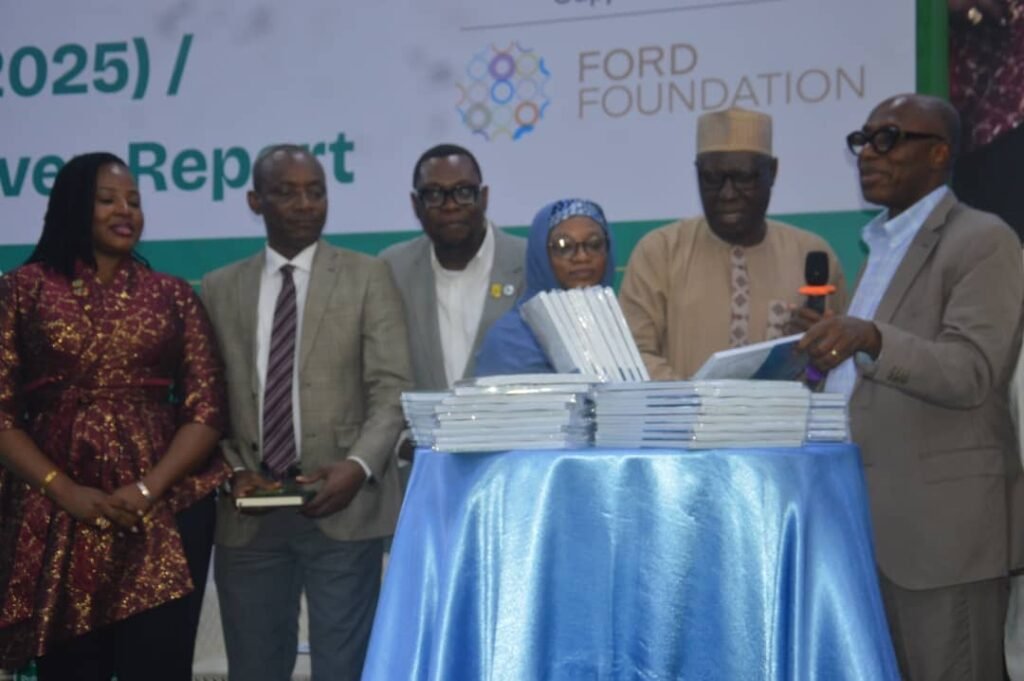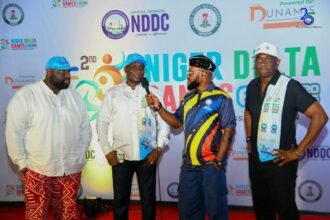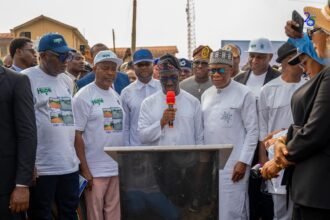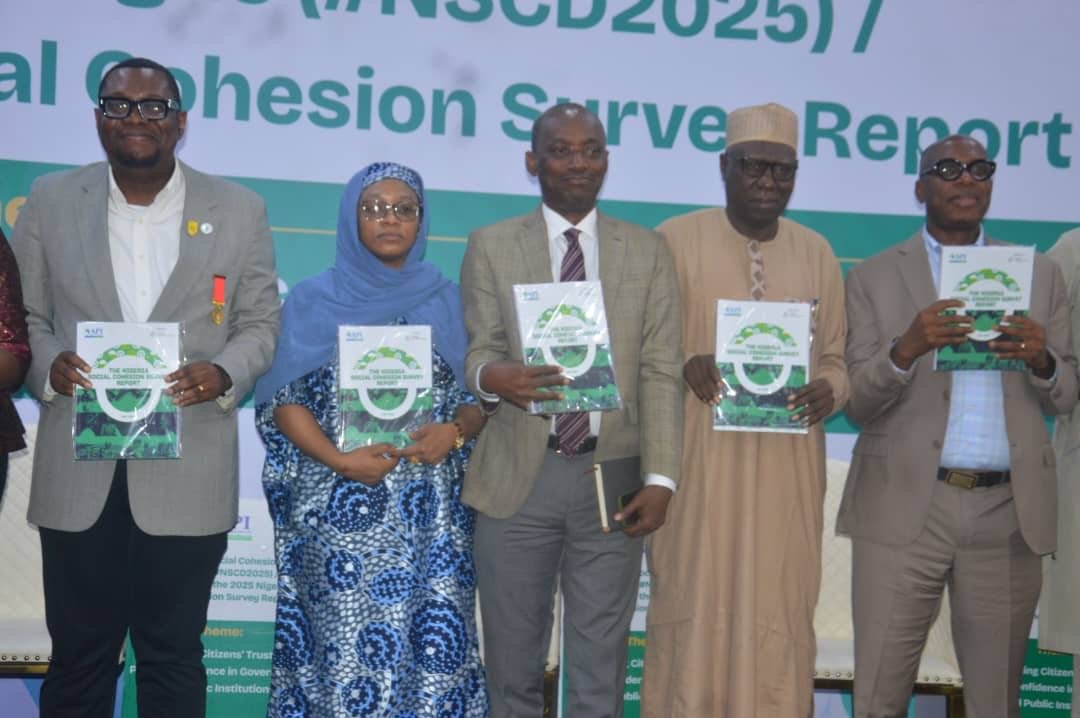Dr. Sam Amadi, Director of the Abuja School of Social and Political Thought, has called on Nigerians to rise above ethnic and religious divisions and commit to values that promote national unity and social cohesion.
He made this appeal on Thursday during the National Social Cohesion Dialogue and official launch of the 2025 Nigeria Social Cohesion Survey Report, hosted by the Africa Polling Institute (API) in Abuja. Themed “Rebuilding Citizens’ Trust and Public Confidence in Governance and Public Institutions,” the event brought together key stakeholders to address Nigeria’s deepening social fractures.
Dr. Amadi lamented that, despite Sections 25 and 27 of the Nigerian Constitution defining citizenship by indigeneity, the state continues to reinforce religious and ethnic distinctions rather than a unified national identity.
“The Nigerian state often appeals to religious and ethnic exceptionalism instead of promoting the ideals of citizenship,” he said. “This has led to a half-hearted approach to public policies that should be grounded in shared values and civilization.” He stressed that during national crises, the focus should be on humanity, not ethnicity or religion. Amadi also pointed to a breakdown in Nigeria’s value system, saying young people are increasingly disillusioned because hard work is no longer rewarded.

“We must restore a culture where effort and merit are truly rewarded. The crisis we face today stems from the fact that merit no longer defines success,” he said.
He advocated for a renewed social contract between the government and citizens to rebuild trust and strengthen cohesion.
Presenting the 2025 Nigeria Social Cohesion Survey, Prof. Bell Ihua, Executive Director of API, said the findings paint a troubling picture of widespread public distrust in government institutions.
“The 2025 survey, which builds on findings from 2019 and 2021, reveals a steady decline in citizens’ confidence in governance and public institutions,” Ihua said.
He disclosed that 83 percent of respondents expressed little to no trust in the administration of President Bola Tinubu, while 82 percent shared similar sentiments about the National Assembly led by Senate President Godswill Akpabio and the House of Representatives. Additionally, 79 percent reported little to no trust in the judiciary.
Ihua noted that the survey provides critical data to inform policies aimed at inclusive governance and restoring public trust.
Also speaking at the event, the Chairman of the occasion and former Ekiti State Governor, Dr. Kayode Fayemi—represented by Mr. Ahmad Sajoh—emphasised the importance of sustained dialogue on national cohesion.
“We must create a framework for shared prosperity and deeper understanding among Nigerians,” he said. He urged the nation to return to core values that uphold empathy, dignity, and unity.
Former Rivers State Governor, Mr. Rotimi Amaechi, in his remarks, noted that the failure to demand accountability from leaders remains a major obstacle to social cohesion.
“The problem is not just the elites. It’s also the complacency of citizens who fail to demand good governance,” he said. “Until Nigerians begin to take responsibility, true social cohesion will remain out of reach.”





